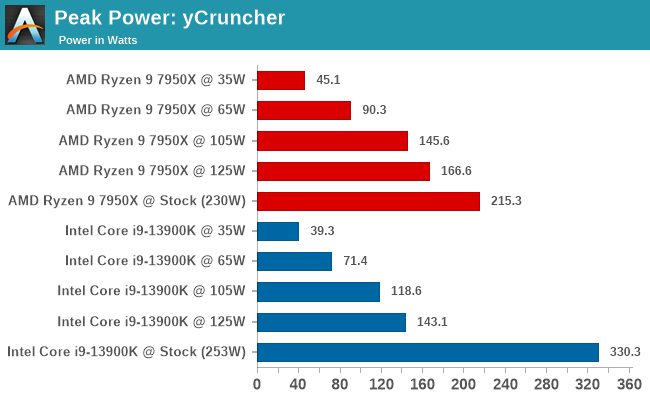I disagree with the fear mongering about the issue when it remains a rather miniscule issue affecting a niche population of users. Why make a mountain out of a molehill is my question. If you had a CPU failure and Intel is giving you the run around on an RMA, then you indeed have my sympathy. I support you! But honestly, I feel that this is the most relevant quote from Puget:
"While the number of failures we are experiencing is definitely higher than our historical average, it is difficult to classify 5-7 failures a month in the field as a huge issue, and it is definitely a lower rate of failure than we are hearing about from others in the industry. The recent spike in 14th Gen failure rates stands out mostly because how incredibly low historical CPU failure rates tend to be."
So I don't think a panic is in order. Rather calm and collection to ensure that our own investment in the product remains intact with plenty of lifetime ahead of it. Sure, next time I may pick up an AMD, but right now I got what I got and I'm going to try my best to use it to the best of its ability...because it still works.
😛
I agree with the fear mongering. In the same release by Puget they also go on to say
"The most concerning part of all of this to us here at Puget Systems is the rise in the number of failures in the field, which we haven't seen this high since 11th Gen. We're seeing ALL of these failures happen after 6 months, which means we do expect elevated failure rates to continue for the foreseeable future and possibly even after Intel issues the microcode patch.
Based on this information, we are definitely experiencing CPU failures higher than our historical average, especially"
And it is not just a niche thing. The oxidation is all encompassing. Even Intel admitted this. And yes I know so far it seems to affect diy consumers more than the general public running OEM systems. But that is because diy consumers are more apt to push the CPU a bit harder.
BUT.. And this is the main issue, These CPUs are degrading faster than normal. It will take longer for the general public to really start seeing problems. Because of the fact that they plug and play. But don't get it wrong, those CPUs are also at high risk of oxidation and degradation faster than what is normally happening.
I don't like people who are spreading misinformation on the issue. There's people who outright deny and lie to others about the facts currently and mislead people who really wouldn't know better. This "Mountain" isn't a molehill. And I tell themselves have acknowledges this and that's why they have extended their warranty period.
I also agree with you that panic is not inorder. And some calm level communication and fact sharing is the best course of action. And also, I think Intel should make all this information public on mainstream media. But just facts and what's being done to fix the issues. Not spreading misinformation and and seeing fanboys form each side trying to make the issue so much bigger or smaller than it is.
I think if Intel went mainstream with the oxidation and degradation issues and they were able to at the same time give information about possible fixes and warranty information for RMAs, that it wouldn't cause a huge backlash. Conversely, I see it helping to show the public that they admitt an issue and are giving multiple ways of an easy resolution and fix. It would back up Intel's statement that they are continuing to support their customers and will work with them to make them feel like they can still trust and appreciate their Intel based systems.
Fyi.... I take no sides in this issue. I don't geek out over AMD or Intel. I want them both to be as successful as possible. I geek out over tech in general.
Also, I also know I'm not as smart as Intel's marketing and Public relations teams. So I'm not going to pretend my ideas for public resolution are what they should do. It's just a quick idea I just share.





